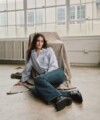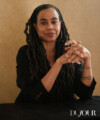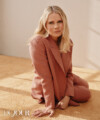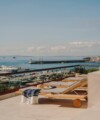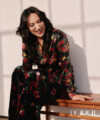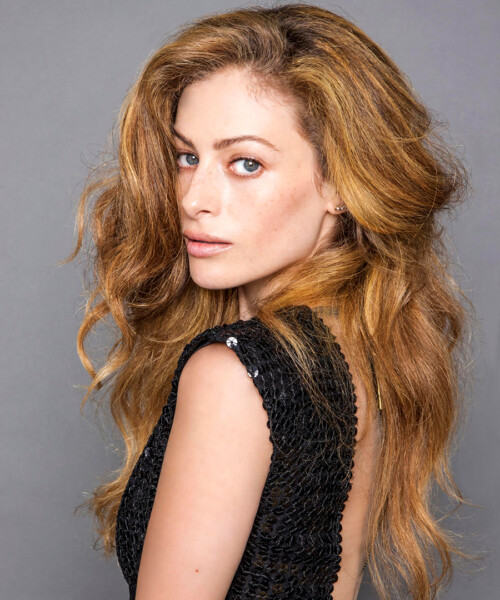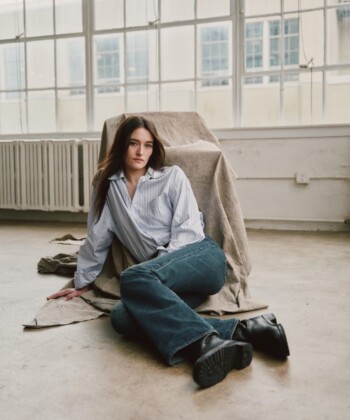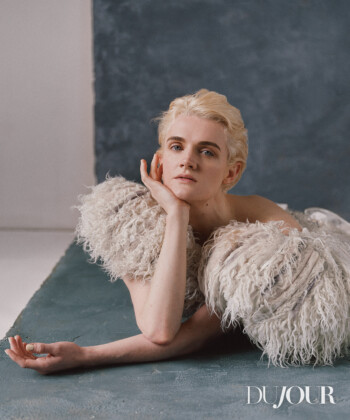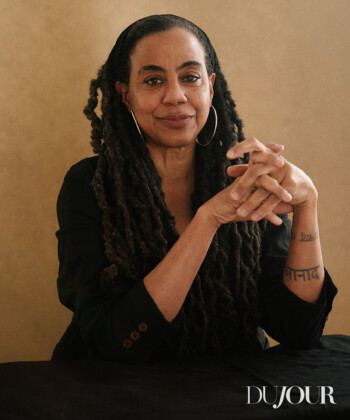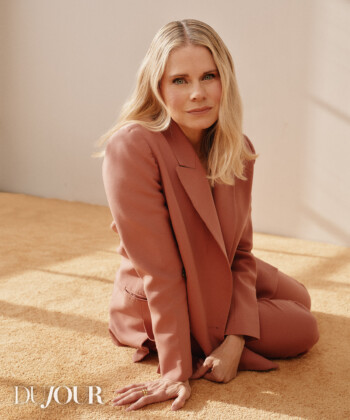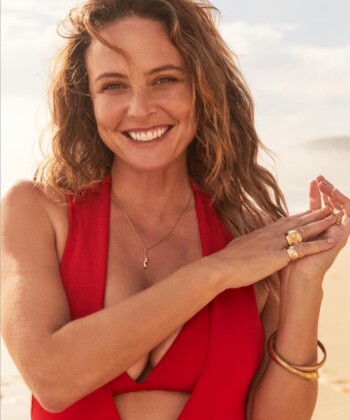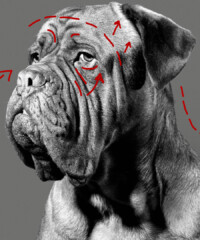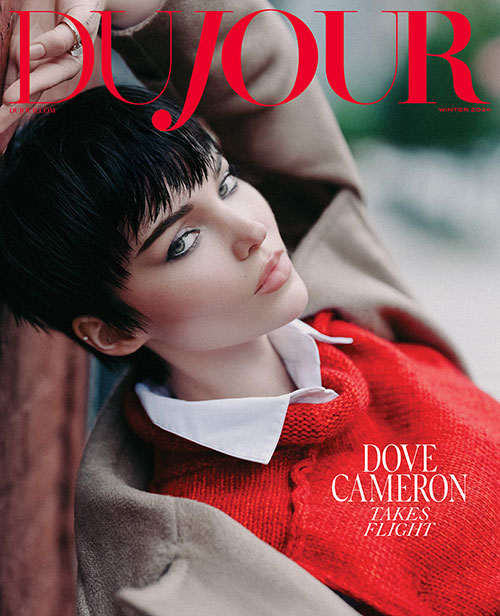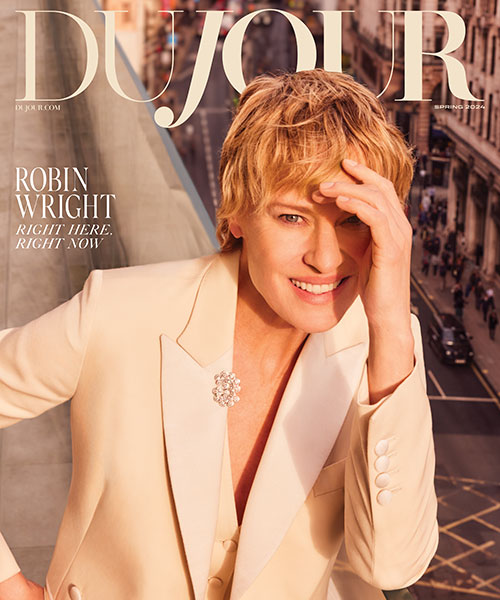A well-known presence on Israeli television, Efrat Dor is quite ready to meet the rest of the world, and later this month, she’ll do just that when she appears alongside Jessica Chastain in The Zookeeper’s Wife. In the period drama set in Poland during the Holocaust, Dor plays Madalena Gross, a prominent sculptor who is the first of hundreds of Jews hidden from Nazis by Antonina and Jan Zabinski (Chastain and Daniel Brühl) inside the Warsaw Zoo.
The role would undoubtedly be an emotional one for an actress of any background, but for Dor, an Israeli with Polish roots, the true story struck a particular chord. Below, she shares a childhood photograph with DuJour and talks life in Israel and her family’s deep connection to The Zookeeper’s Wife.
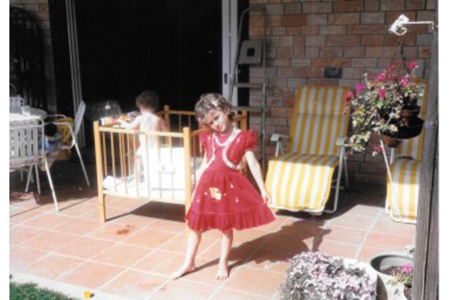
Efrat Dor
Why did you choose this picture?
I only had a little selection. I don’t have a lot of pictures and stuff. I’m just not a person that really has a lot of things. The rest of the pictures were without clothes, so I thought they might be inappropriate. I kind of feel like I was never really dressed before the age of seven. I think I was just always in the nude, kind of hippy in that way I guess. This was a dressed picture, so I was like, “Yay, I can use this.” It’s typical because I kind of look like I’m acting and dancing and I was very thirsty for attention. Not that I didn’t get any. I got a lot, it was just never enough.
What was childhood like in Israel?
I always feel very lucky because whenever I talk about my childhood I burst into this huge smile. I don’t know if it was the place, it was a small place in the south of Israel, or if it was just the ‘90’s. Everything was just so naive. I don’t know if I can recall something specifically, but it was just the vibe. First of all, the country. I totally remember the time growing up before intifadas and before the Arabs and everything started to be really scary. People would not lock their doors and we lived in a small place and right outside there was a Bedouin town, and we were always friends. I really remember those times. Then suddenly I remember the times when I was a bit older and if you would see somebody who was Arab, you would be scared when you walked alone or something. So the childhood Israel that I remember had no fears. It was just like utopia.
As an Israeli, you must have felt quite a deep connection to this film.
The most amazing thing about this character and me getting this movie is my grandma, God bless her. She’s 94 and she’s alive. She’s from Poland. Her mother, father and brother died in the Holocaust. So she was there, I know her story, obviously, so well. They had to dig their own graves and they were shot in Poland in the war by the Germans. On set, it was a very heavy, dramatic feel. You can never really detach yourself from your personal connection to the story. It was hard to film this. I felt very emotionally involved in the movie. I had many conversations with my grandma about it, whom obviously said, “Oh, I have so many stories to tell them! They should add it to the script!” I was like, “It’s kind of set, but…” She was really nice and sweet. I researched Magdalena Gross of course, the actual person. I saw her sculptures and read her story. I read the book.
Has your grandmother seen the movie?
It hasn’t come out in Israel yet. It’s going to be released here at the end of April. I’m really excited. I hope she can take it. It’s a beautiful movie and I think what’s so special about this movie is that it talks about hope and actually even though the subject is so terrible, the story is beautiful and it is uplifting. You leave the cinema, I hope, with a smile. Maybe your eyes will be puffy because you cried because it is emotional, but with a feeling that everybody can rise up against evil. Sadly that is so relevant in these times.
Main image credit: Gilles Toucas


